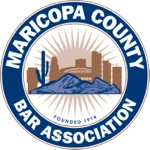There are many DIY website builders that allow attorneys to create websites quickly and without the help of a developer. While the much lower price point can make these options appealing, the end result is often an ineffective (and incomplete) website.
Let’s explore why that is.
1. On-page Optimization
On-page optimization is a critical component of effective search engine optimization. Some of this happens “behind the scenes” in the code. On-page optimization helps to improve the search engine rankings of a website and attract additional traffic to it as well. Factors in on-page optimization include best practices on headlines, images, and HTML tags as well as relevant, high-quality content.
While you’ll sometimes find the option to edit this in DIY platforms, it often won’t be there at all. And because most attorneys don’t have experience with SEO, they may not know how to use these elements in their site builder.
As a result, it isn’t uncommon to see these elements unused or underutilized in a firm’s DIY website.
2. Mobile Responsiveness
In light of Google’s Mobile-First update, all sites need to be fully responsive to maintain any visibility moving forward. The shift to mobile responsiveness, which has been gaining momentum for a long time, is intended to ensure that customers or clients have the same experience whether they’re on their phone, a tablet, or a desktop computer.
While many DIY templates are built with this in mind, when a creator adds additional elements to their website, the result is often a less than desirable mobile experience for the client or customer.
3. URL Redirects
When building a new website, a creator may not have the need for URL redirects. But as the site grows and there are more categories and pages, you may realize, for instance, that you’d like simpler URLs than you’d originally chosen. Or, you may be combining old web pages together when you redesign the site.
It’s very common to need a URL redirect. If your practice already has a site, you’ll want to make sure your URLs remain the same or have URL redirects put in place to ensure that any existing backlinks to your site remain intact. You won’t want to lose a lead because you’ve updated a URL. Unfortunately, this often isn’t an option with DIY site builders.
4. Cutting Corners on Content
We’ve seen this scenario many times: A solo practitioner has a few hours free on a Sunday, so he sits down to build his website. The work passes quickly as the momentum builds, but he flags a few pages that still need content. Though he vows to work on the project over the next few weeks, he never comes back to it. The end result? A site that is forever “under construction”.
5. Accessible? Not Typically
DIY websites typically aren’t accessible. Those who miss out can include those who are hard of hearing or who are color-blind, for instance. Most of the available templates are not designed with WCAG 2.1 guidelines or with accessibility best practices generally. This oversight means that millions of Americans won’t be able to consume all of the content on your site.
6. Limited Functionality
As much as “plug and play” can sound appealing, the DIY websites trade ease of use and a quicker learning curve for fully customizable features.
This can be a problem if you don’t like how an element of your site functions. With little customization available, the creator is forced to make compromises. Many are left with regret at the end of the process, recognizing “it could be better” but without the option to achieve what they’d hoped to with this project.
7. You May Not Own the Design
With many of these DIY website builders, the site design isn’t transferable. So if you had your site with WIX and then decide to move it over to WordPress, you’ll need to rebuild it from scratch. That can quickly move you from delight at the “savings” of a DIY website to frustration at the time and expense involved in moving the site. It can also make you feel “stuck” with the DIY platform you’ve started with.
While a do-it-yourself website builder can be really tempting, there are a lot of tradeoffs that can make it a more costly option in the long run. A professional website development agency is undoubtedly more expensive, it is worth the investment in your firm and your future.












